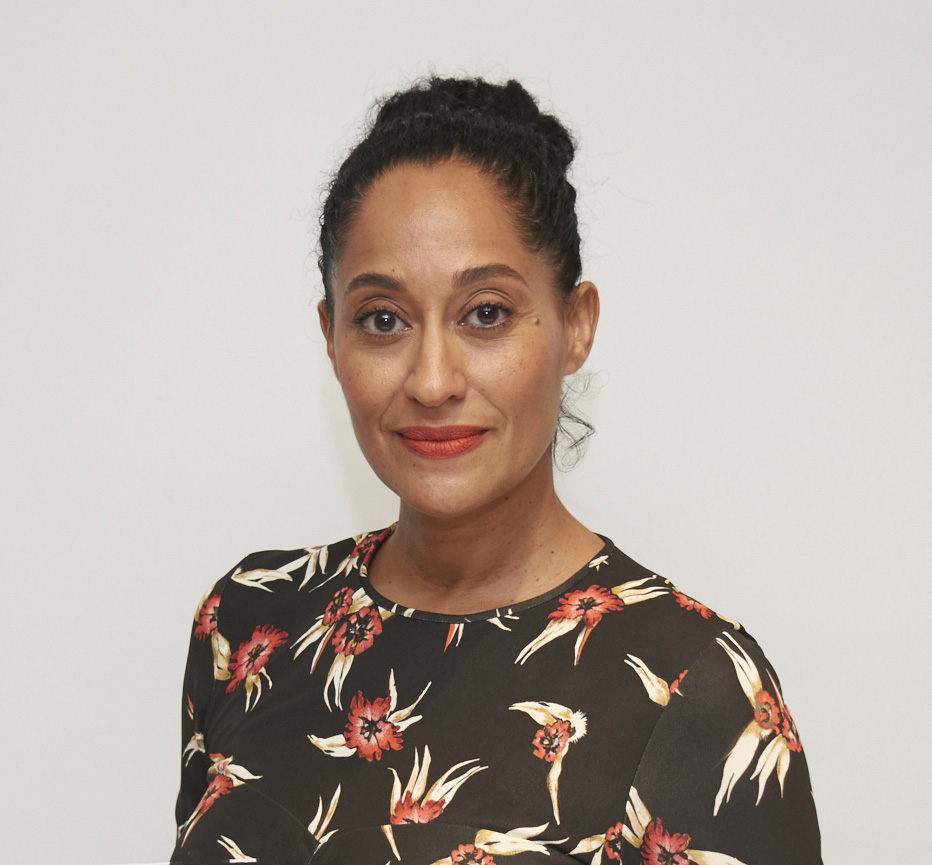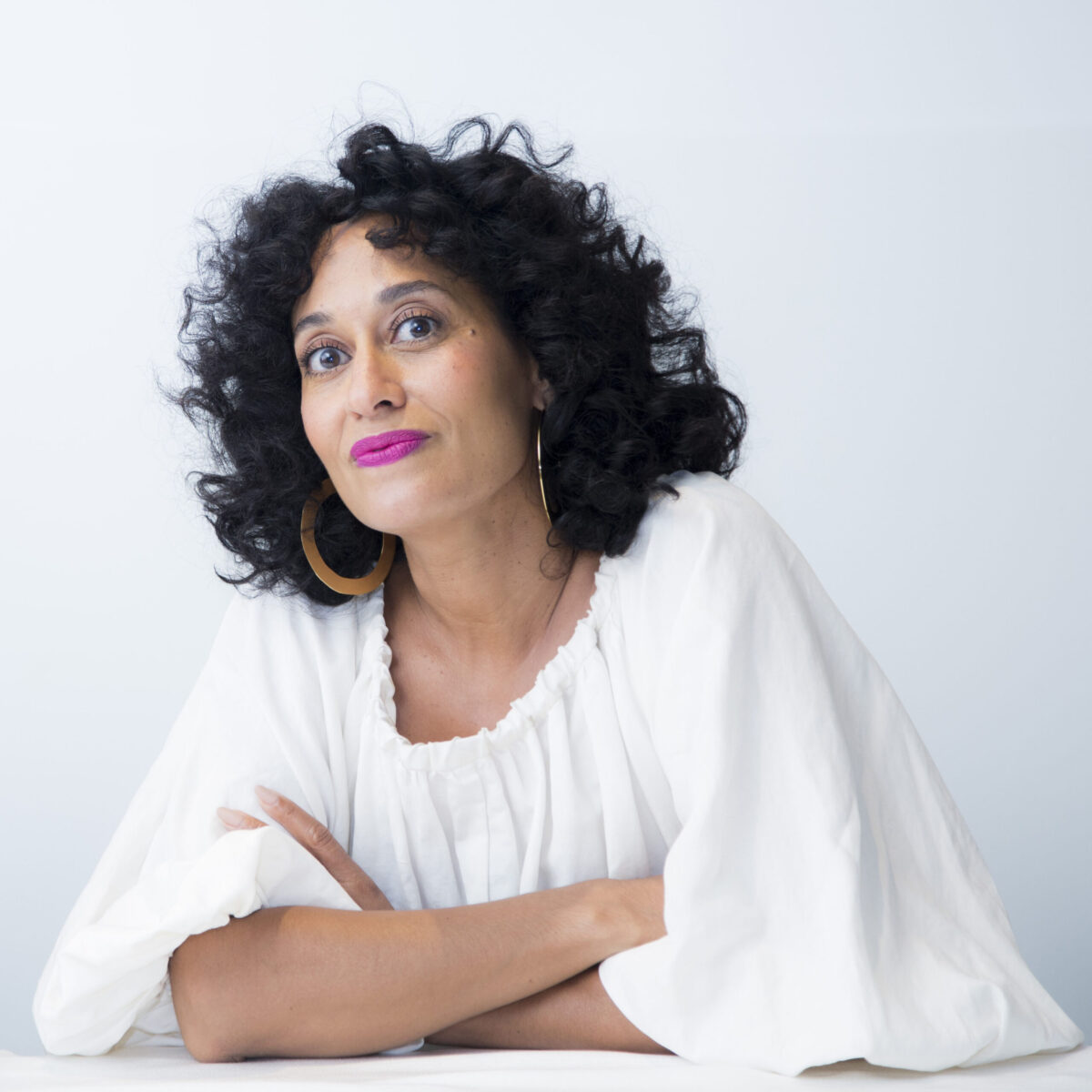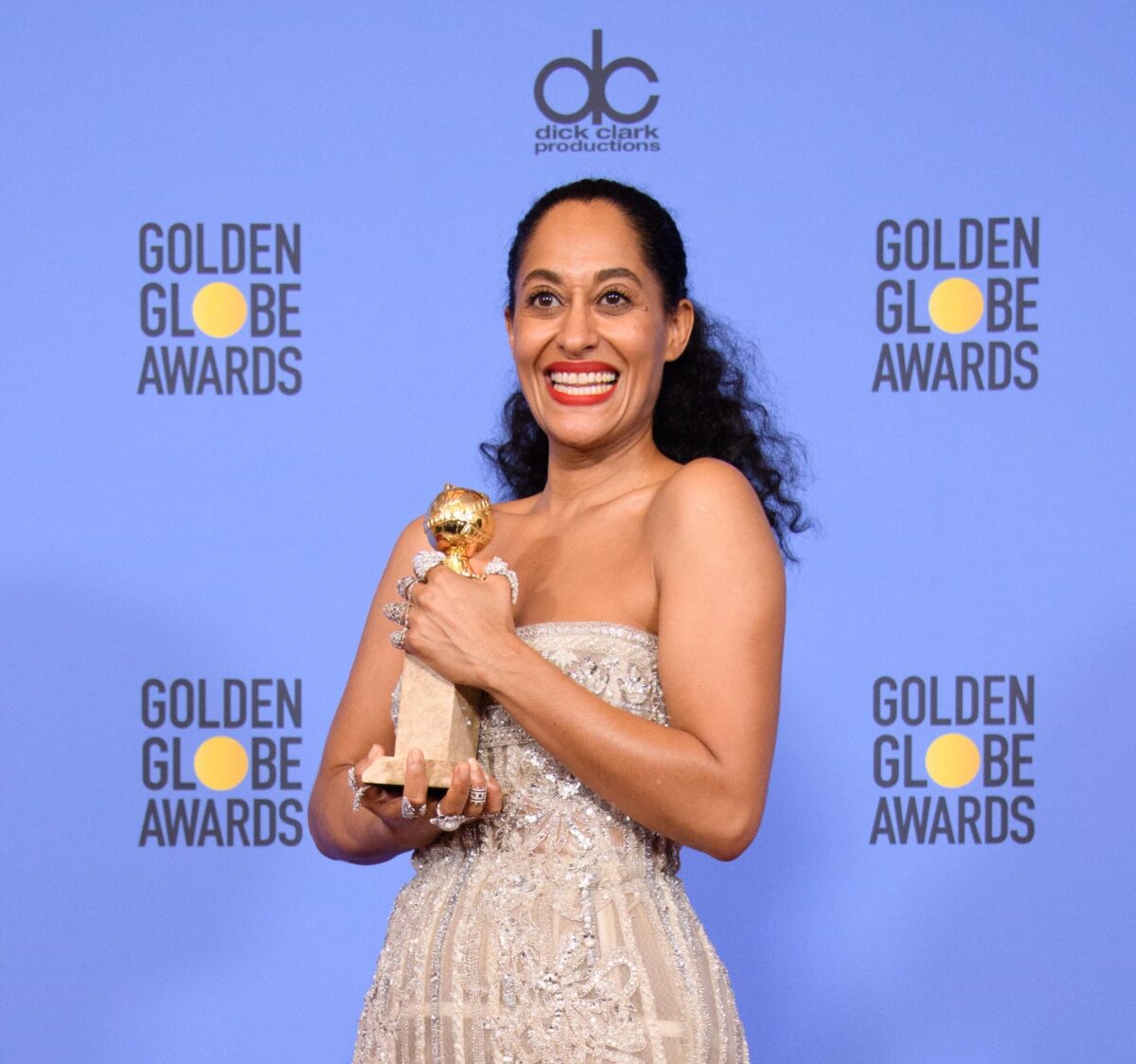Tracee Ellis Ross starred in the television sitcom Girlfriends (2000-2008) about the friendship between four black women living in L.A., she currently stars in Black-ish (2014-2021), as the doctor wife in the Johnson family, with Anthony Anderson as her husband, and she was awarded a Golden Globe as best actress by the journalists of the Hollywood Foreign Press for that comedy series. But it was not until her full-blown performance as a famous singer in The High Note directed by Nisha Ganatra, that I truly began to appreciate her talent and her outspokenness. I featured the film in one of my articles about Women Directors.

When I interviewed Ross a year ago, I asked her about the commonality between Latino and Asian immigrants and Black Americans as people of color. She replied: “I’ve been vocal in my life, and particularly right now, about the inequities that exist in our world, whether it’s because of the color of your skin, your gender, your age, your weight, your abilities, or whatever. I do everything within my power to work towards changing the systems that keep us locked in, that don’t allow us to live our lives fully. In all industries and everywhere, for all kinds of people, whether you’re old, young, black, white, pink, yellow, orange, or whatever, it’s difficult for all of us to not be relegated to the small real estate that the world thinks we should be in.”
When I spoke with Ross again after the 2020 Presidential election, she said: “It wasn’t just during the Trump administration, this has been an ongoing problem in this country for quite some time. The abuse of power and the treatment of black people and people of color needs to be addressed, and hopefully, there will be some accountability in the Biden-Harris administration. The role of the American people is holding those elected officials accountable, so that our government actually represents us and we can all have a sense of equality and safety.”

Black-ish has been dealing with current issues like race relations and police brutality from the very first season, after creator Kenya Barris had to explain to his small sons why people were so mad about the Ferguson unrest. That was the year after #Black Lives Matter started in 2013. And the series has continued to do so with seventh season episodes about the Presidential elections and the coronavirus lockdown. Ross said: “Blacki-ish is about race, identity, culture, tradition, and where all of those things intersect and overlap. We mix those heavy subjects, like police brutality, gun control, spanking your children, postpartum depression, into a hilarious show. Because of the pandemic we see the reality of Bow Johnson as a doctor, how in her role as an anesthesiologist she is helping people, while keeping her family safe. The health crisis has pulled the curtain on the inequity and oppression that exists systemically in this country, the fact that people of color are disproportionately affected by COVID and by unemployment, because of the systemic inequities built into the fabric of this country that we are still trying to correct.”
A 2017 spinoff Grown-ish follows daughter Zoey Johnson (Yara Shahis) when she goes to college and bonds with a group of diverse friends, Cuban, Indian, Jewish, Black. The fourth season starts July 8, 2021. Watch trailer.
In 2019 Tracee Ellis Ross co-created a second spinoff Mixed-ish (2019-2021), which is about Rainbow Johnson’s childhood, having to adjust to moving to the suburbs in 1985 after being raised by her white dad and black mother in a hippie commune. Ross said: “Living in Europe, especially when I went to school in Switzerland and in Paris, it was so diverse, there were kids from Africa, from Kuwait, from Brazil, there was such a mix. And I am also mixed. My dad is white and Jewish, my mom is black, my family is integrated and wonderfully diverse.”

As I wished to delve deeper into understanding Ross’ life and career, I screened several episodes of these three series, available on Hulu, and I watched Ross’ acceptance speech and backstage interview at the 2017 Golden Globes, where she said, “I feel very special to be in a category with Debbie Allen, and to be in a family with two Golden Globe winners.” Allen having won as Best Actress for the TV series Fame in 1983, and her mother Diana Ross having been nominated as best actress for Lady Sings the Blues, and winning as Most Promising Newcomer in 1973.
When I interviewed Lee Daniels, the director of The United States vs. Billie Holiday, a movie that I examined in my article “The FBI vs Black Power,” I learned that the earlier movie of the singer’s life story, Lady Sings the Blues (1972) with Diana Ross and Billy Dee Williams, romanticized the love story between Holiday and her manager husband, and when I spoke with Andra Day in a one-on-one for the Golden Globes website, she confirmed that in reality Louis McKay had been abusive. So I went to watch that movie again, and saw what they meant.
Ross said about her mother: “She is a woman who created a path that didn’t exist before, she was a trailblazer that opened up the ability for me to be a black woman who has agency and choice in how I navigate my career, who isn’t afraid to be as big as I want to be.”
We encourage you to listen to Tracee Ellis Ross’s own words, as she is interviewed by Anke Hoffman.
